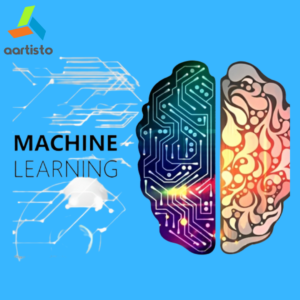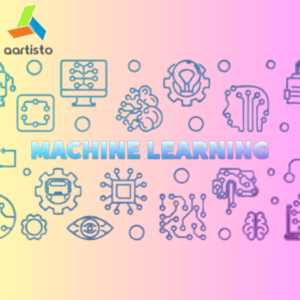Explore how machine literacy is being used in PrestaShop and other ecommerce platforms to produce substantiated shopping guests for guests.
The use of machine literacy in ecommerce platforms, similar to PrestaShop, is revolutionizing the online shopping experience. With the capability to produce acclimatized and substantiated guests for guests, machine literacy has become a pivotal element of ecommerce platforms. In this blog post, we will explore how PrestaShop and other ecommerce platforms are exercising machine literacy to produce further engaging and particular guests for guests.
1.The basics of machine literacy in ecommerce
Machine literacy is a branch of artificial intelligence that focuses on creating algorithms and models that enable computers to learn and make prognostications or opinions without being explicitly programmed. In the environment of ecommerce, machine literacy algorithms can dissect vast quantities of data to identify patterns, make prognostications, and deliver substantiated guests to guests.
At its core, machine literacy involves three main ways: data collection, data preprocessing, and model training. In ecommerce assistance, data collection involves gathering information on client behavior, similar as browsing history, purchase history, and preferences. This data is also preprocessed to remove any inconsistencies or outliers, icing that the machine literacy model receives clean and dependable input.
Once the data is preprocessed, the machine literacy model is trained using colorful algorithms, similar as decision trees, neural networks, or support vector machines. The model learns from the patterns and connections in the data, allowing it to make prognostications or recommendations grounded on new or unseen data.
In the environment of ecommerce, machine literacy can be used for a wide range of operations. It can be employed to optimize pricing strategies, identify and help fraud, epitomize product recommendations, ameliorate hunt applicability, and enhance client service. By using machine literacy in ecommerce platforms like PrestaShop, online stores can gain a competitive edge by delivering acclimatized and substantiated guests to their guests. This not only increases client satisfaction but also improves conversion rates and client fidelity.
Overall, the basics of machine literacy in ecommerce involve data collection, preprocessing, and model training to produce algorithms that can make prognostications and recommendations. By employing the power of machine literacy, ecommerce platforms can enhance the online shopping experience for guests and drive business growth.
2.The benefits of machine literacy for online stores
Machine literacy offers a wide range of benefits for online stores, revolutionizing the way they operate and engage with guests. One of the crucial advantages is the capability to deliver substantiated shopping guests . By assaying client data, machine literacy algorithms can understand individual preferences, behavior patterns, and purchase history.
This allows online stores to make acclimatized product recommendations, suggest affiliated particulars, and produce substantiated marketing juggernauts. As a result, guests feel more valued and understood, leading to increased satisfaction, fidelity, and eventually, advanced conversion rates.
Another benefit of machine literacy in ecommerce is the optimization of pricing strategies. Machine literacy algorithms can dissect request trends, contender pricing, and client behavior to determine the most effective pricing strategy. This can lead to advanced profit perimeters and increased deals, as the algorithms can identify the optimal price points for different products or client parts.
Machine literacy also enables online stores to identify and help fraud. By assaying vast quantities of data, machine literacy algorithms can describe patterns and anomalies that indicate fraudulent conditioning. This helps cover both the store and the guests, icing secure deals and reducing the threat of fiscal losses.
Also, machine literacy can enhance the effectiveness of hunt machines on ecommerce platforms. By understanding client preferences and behavior , the algorithms can deliver more accurate hunt results, perfecting the overall stoner experience and making it easier for guests to find what they’re looking for.
In summary, machine literacy offers a multitude of benefits for online stores, including substantiated shopping guests , optimized pricing strategies, fraud discovery, and better hunt applicability. By employing the power of machine literacy, online stores can stay ahead of the competition, increase client satisfaction, and drive business growth.
3. How machine literacy is used to epitomize shopping gests
Machine literacy plays a pivotal part in bodying shopping guests for guests in ecommerce platforms like PrestaShop. By assaying vast quantities of client data, machine literacy algorithms can understand individual preferences, behavior patterns, and purchase history, allowing online stores to produce acclimatized and substantiated guests .
One way machine literacy is used to epitomize shopping guests is through product recommendations. These algorithms can dissect a client’s browsing history, purchase history, and preferences to suggest applicable and individualized products. This not only enhances the client’s shopping experience but also increases the liability of a purchase.
Machine literacy also enables online stores to produce substantiated marketing juggernauts. By understanding client preferences and behavior , algorithms can deliver targeted announcements and elevations that are more likely to reverberate with individual guests. This personalization helps produce a stronger connection between the client and the brand, leading to increased fidelity and client satisfaction.
Likewise, machine literacy can be used to optimize the layout and design of an ecommerce platform. By assaying stoner behavior and relations, algorithms can identify the most effective placement of rudiments similar to product images, descriptions, and call- to- action buttons. This optimization improves the stoner experience, making it easier for guests to find what they are looking for and adding the liability of a conversion.
4.exemplifications of successful executions of machine literacy in ecommerce
Machine literacy has been successfully enforced in colorful aspects of ecommerce, leading to enhanced client guests and better business issues. Then are a many exemplifications of how machine literacy has revolutionized the ecommerce assiduity
1.Individualized product recommendations numerous ecommerce platforms, including PrestaShop, use machine literacy algorithms to give guests substantiated product recommendations. These algorithms dissect client behavior , purchase history, and browsing patterns to suggest applicable and customized products. For illustration, Amazon’s recommendation machine uses machine literacy to display” guests who bought this also bought” recommendations, leading to increased deals and client satisfaction.
2.Dynamic pricing strategies Machine literacy algorithms can dissect request trends, contender pricing, and client behavior to optimize pricing strategies. For example, airline companies frequently use machine literacy to acclimate ticket prices grounded on factors similar as demand, time of booking, and contender prices. This dynamic pricing strategy ensures that guests are offered competitive prices, maximizing profit for the business.
3.Fraud discovery Machine literacy algorithms can describe fraudulent conditioning by assaying vast quantities of data and relating patterns that indicate fraudulent behavior . Ecommerce platforms use these algorithms to help credit card fraud, identity theft, and other forms of online swindles. By enforcing machine literacy for fraud discovery, online stores can give a secure terrain for both guests and merchandisers.
4.Enhanced hunt applicability Machine literacy algorithms can ameliorate the delicacy and applicability of hunt results on ecommerce platforms. These algorithms dissect stoner behavior, preferences, and once hunt queries to deliver more accurate and substantiated hunt results.
This ensures that guests find what they’re looking for snappily and fluently, perfecting the overall stoner experience. These are just a many examples of how machine literacy has been successfully enforced in the ecommerce industry. As technology continues to advance, we can indeed anticipate more innovative operations of machine literacy in the future, further revolutionizing the online shopping experience.
5. Challenges and implicit risks of using machine literacy in ecommerce
While machine literacy offers multitudinous benefits for ecommerce platforms, there are also some challenges and implicit risks that businesses should be apprehensive of. One challenge is the need for high- quality and dependable data. Machine literacy algorithms heavily calculate on data, and if the data is inaccurate, deficient, or prejudiced, it can lead to misleading prognostications and recommendations.
Thus, ecommerce platforms need to ensure they’ve proper data collection and preprocessing ways in place to gain clean and dependable data. Another challenge is the constant need for model updates and advancements. As client preferences and actions evolve, machine literacy models need to be regularly streamlined to stay accurate and applicable.
This requires devoted coffers and moxie to continuously cover, dissect, and optimize the models. Likewise, sequestration enterprises can arise when exercising machine literacy in ecommerce. Collecting and assaying client data can raise enterprises about data security and sequestration breaches.
It’s pivotal for ecommerce platforms to prioritize data protection and insure compliance with applicable regulations to maintain client trust. Also, the perpetration of machine literacy in ecommerce may bear significant investments in technology structure and professed labor force. It’s important for businesses to precisely estimate the costs and coffers needed to apply and maintain machine literacy algorithms effectively.
Despite these challenges, the implicit benefits of using machine literacy in ecommerce far outweigh the pitfalls. With proper planning, investment, and nonstop enhancement, ecommerce platforms can work machine literacy to deliver substantiated and engaging shopping guests for their guests.
6.The future of machine literacy in ecommerce
As technology continues to advance, the future of machine literacy in e-commerce holds immense eventuality. We can anticipate further advancements and innovative operations that will revise the online shopping experience. One area where machine literacy is likely to make significant strides is in prophetic analytics.
By assaying vast quantities of data, machine literacy algorithms can identify patterns and trends, allowing online stores to prognosticate client behavior and preferences with lesser delicacy. This will enable businesses to anticipate client requirements and deliver more individualized gests . also, machine literacy algorithms are anticipated to come more sophisticated in understanding and assaying unshaped data, similar as images and videos.
This means that ecommerce platforms will be suitable to work visual data to enhance product recommendations, search applicability, and indeed virtual pass- on gests . Another area of growth for machine literacy in ecommerce is natural language processing. With advancements in language processing algorithms, chatbots and virtual sidekicks will come more intelligent and able of understanding and responding to client queries and requests. This will significantly ameliorate client service and streamline the shopping experience.
likewise, we can anticipate to see increased collaboration between machine literacy algorithms and stoked reality( AR) technology. AR can enhance the online shopping experience by allowing guests to fantasize products in their own terrain before making a purchase. Machine literacy algorithms can play a pivotal part in optimizing and bodying these AR gests , icing that guests have the most accurate and applicable information at their fingertips.
Overall, the future of machine literacy in ecommerce is incredibly instigative. As technology continues to evolve, we can anticipate to see indeed more innovative operations that will transfigure the way we protect online. By using the power of machine literacy, ecommerce platforms will be suitable to deliver largely acclimatized and engaging guests for guests, driving business growth and client satisfaction.
Conclusion:
In the moment’s fleetly evolving e-commerce geography, machine literacy has proven to be a game- changer. By employing the power of machine literacy, ecommerce platforms like PrestaShop can deliver substantiated shopping guests that are acclimatized to each individual client.
From substantiated product recommendations to optimized pricing strategies, machine literacy is revolutionizing the way online stores operate and engage with their guests.
Also Read: Sustainable SEO: Long-Term Practices for Everlasting Results
Also Read: What are the legal aspects of choosing a name for a company?
